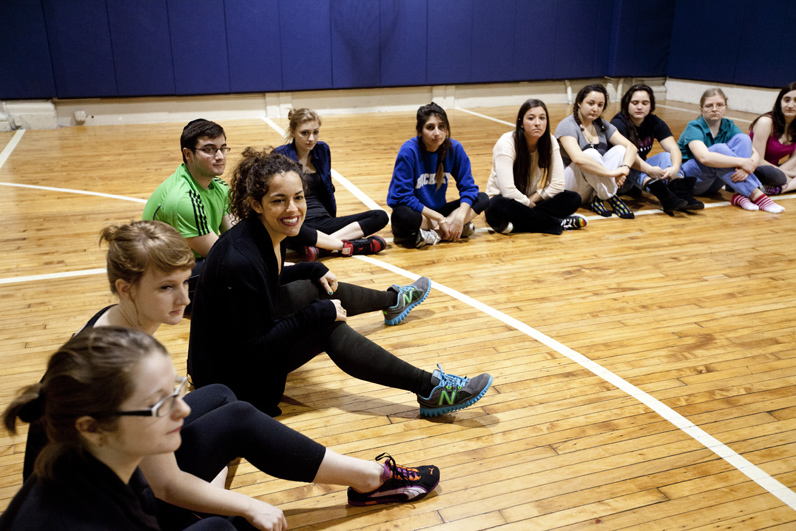
New Initiative Sets Its Sights on Changing Higher Ed
A novel initiative aiming to redefine how universities interact with their surrounding communities on pressing urban challenges comes to an important halfway point at the end of this semester. The New School Collaboratory, a two-year project working at the intersection of social research and design, is approaching the end of its research phase, during which participants have been exploring how The New School can enhance its role as a hub for social justice and improve social innovation initiatives.
“Our goal is for the Collaboratory to be a resource where students, faculty, and the greater community can collectively work towards solving issues that confront our world and to provide insight as to how to do this well,” says Milano professor of professional practice Michele Kahane, one of the original Collaboratory leaders with Mary Watson (Associate Dean, Milano) and Tony Whitfield (Director of Social Engagement, Parsons).
Launched in the spring of 2013 by the Social Innovation Initiative and the Provost’s Office, the Collaboratory acts as an action-research initiative and community of practice. Currently the focus is six projects—Health Class 2.0, Project Eats, Ship’s First Shape, Arts for Survival Toolkit, Revitalizing NYC and New Challenge—all have a classroom or seminar component as well as fieldwork that connects students and faculty with community members. “The design of the Collaboratory has been a great example of a collective, university-wide effort to support the university’s vision of being a leader in socially-engaged learning and scholarship” says Associate Dean Watson.
The Collaboratory was founded thanks to a grant from the Rockefeller Foundation. During the last year, faculty, students and external partners participating in the six Collaboratory-affiliated projects are assessing the relationship between the projects and the university. During the coming year, the Collaboratory will work to suggest institutional changes to make The New School more accessible to its outside partners and the general public.

Some of the close to 50 faculty, students and partners participating in the Collaboratory convene to reflect on their work together. (Photo by Syambra Moitozo)
“Universities have traditionally been pretty closed-off silos. But that’s such a pity. They house not only a formidableintellectual capacity and access to human capital but also students with a burning desire to change the world,” says Collaboratory research assistant and School of Media Studies master’s candidate Katie Edmonds.
“Our goal is for the Collaboratory to be a resource where students, faculty, and the greater community can collectively work towards solving issues that confront our world”
The second phase of the Collaboratory’s work, the design process, will begin in the fall of 2014. The Collaboratory will seek to proto-type strategies, techniques, and processes for teaching, scholarship and work in the community and with external partners, building on the previous year’s research. As with the first phase of this process, this next phase will be a co-creative process involving faculty, students and external partners.
“Ideally, the Collaboratory will become an ongoing resource for The New School, if we can attract additional funding over time” says Kahane. “A smart program constantly refines and reassesses its practices in order to expand capacity. We’re hoping to model the new university as a hub for social innovation and social justice.” And that’s ultimately the goal—to reimagine what a higher education institution can deliver, not only to its students but to the rest of the world as well.
Stay tuned to the New_S for continued updates on the Collaboratory’s design phase as well as news on the projects it supports.